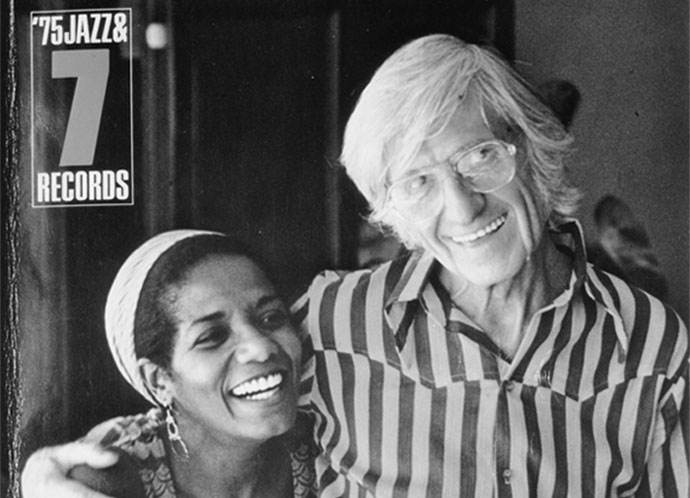 Miles Evans Two Part Harmony
Miles Evans: Two-Part Harmony By
Published: August 9, 2012 By
Published: August 9, 2012Trumpeter Miles Evans, like saxophonist Ravi Coltrane, has faced the plus/minus of being the son of a jazz icon—in this case, legendary composer/arranger/bandleader Gil Evans. But if Ravi's exposure to his father was cut short by the saxophonist's too-early demise in 1967, just shy of the youngster's second birthday, Miles had the opportunity to grow up with his dad—even playing in Gil's bands beginning in the early 1980s on albums like Live at Sweet Basil, Vols. 1 & 2 (Evidence, 1984). Like Ravi, Miles has struggled with coming up under the large shadow of his father, whose recordings with another legend, trumpeter Miles Davis, remain touchstones for both nascent and expert jazz fans today. But by focusing on the instrument of his namesake, Miles Evans has more easily come from under the shadow of his father, as opposed to Ravi, who chose to play the same instrument as his dad, rendering comparisons—if more than a little unfair and unfounded—somewhat inevitable. As a trumpeter, Miles Evans has forged his own career, collaborating with everyone from drummer Bob Moses and trumpeter Lew Soloff to producer/composer Quincy Jones and guitarist Ray Russell. But he's never forgotten his roots and, as musical director of The Gil Evans Orchestra, he remains committed to both his own voice and the memory of his late, great father. All About Jazz: Your dad would have turned 100 years old in May. Tell me about The Centennial Celebration you had in tribute. Miles Evans: Well, it was really a blast to do. What originally happened was I had gotten in touch with a promoter and a very well-respected musician who had previously played with Gil. He agreed to perform with The Gil Evans Orchestra for Gil's 100th birthday. We were going to do it at a very large venue but his schedule became too hectic and we had to cancel the international concerts we'd also planned. My brother Noah said, "Hey, let's do a gig in New York," so he and others came up with the Highline Ballroom. We then got together these fantastic musicians who had played with Gil Evans over the years. It was an amazing tribute and we had a lot of fun. AAJ: Who were the musicians? ME: They were musicians that had played with Gil in the '60s, '70s and '80s. Very special musicians like [baritone saxophonist/tubaist] Howard Johnson, [trumpeter] Jon Faddis, [trombonist] Dave Bargeron, [trumpeter] Lew Soloff, [saxophonist] Chris Hunter, [saxophonist] Billy Harper, [keyboardist] Gil Goldstein, [bassist] Mark Egan, [tubaist] Bob Stewart, [French hornist] John Clark and others. [Guitarist] Ryo Kawasaki even came all the way from Estonia. He used to play with Gil back in the '70s. There were other great musicians that didn't actually play with Gil but played with The Gil Evans Orchestra under my direction, like Kenwood Dennard. He'd been The Gil Evans Orchestra drummer for years. Also, there were musicians who played with my band on the West Coast, like Oz Noy, for example. He's a phenomenal guitarist. We had this guy that I love, Matthew Garrison. He's a young and talented bassist who played a beautiful version of "Voodoo Child." All those musicians really mean a lot to us. AAJ: I understand you granted [composer/conductor] Ryan Truesdell permission to work with some of your father's archived compositions. ME: Yes, Ryan did an excellent job researching my father's work and presenting more than one period of his music as well. It resulted in sharing the great Gil Evans' music with more and more people. I prefer to innovate music, not unlike the way Gil and Miles Davis did, so I wanted someone else to do the older periods of my father's music and it turned out to be Ryan; I could tell that he was talented. I felt that the music should be heard because it's unbelievably great—like "Barbara's Song," for example. I had a very strong feeling about Ryan and that's why I picked him to present the music. AAJ: Will you collaborate with Ryan in the future? ME: You never know. Maybe we will collaborate.
|
|

